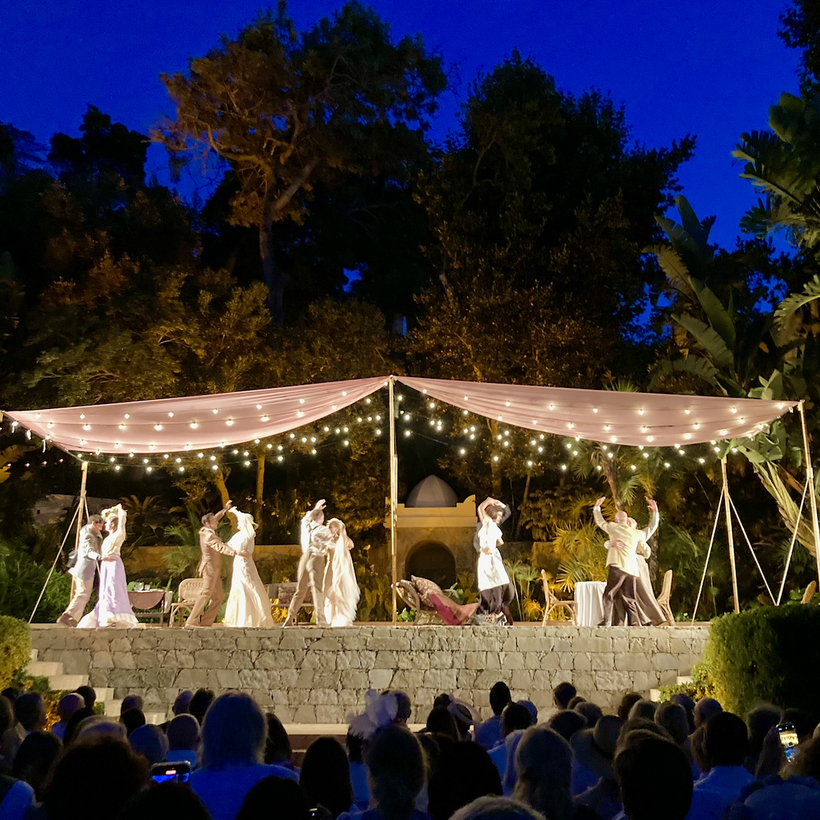“What does it mean, The Cherry Orchard?” asked Ismail, the young Tanjawi gentleman who had answered the door at Gazebo, Veere Grenney’s mountaintop estate in Tangier. He then led me down through the British interior designer’s stunningly landscaped wonderland, conjured from the rubbled disorder on the mountainside below when Grenney bought the property, in 2009.

Now a breathtaking array of artfully arranged gardens and footpaths, foliage and folly, it opened to reveal the swimming pool. Or it should have. Only a day or two before, the pool had been crossed with steel girders put in place to buttress a wooden floor, upon which the wonderland’s newest arrangement had been assembled: row upon row of garden chairs, and, behind them, the benches which made up the balcony area where Ismail and I were now sitting. The words “The Cherry Orchard” were emblazoned on a makeshift screen that hid a bit of the promontory of rocks and even more foliage at the other end of the pool, which would serve as the stage for a one-night-only charity performance of the Chekhov play.

